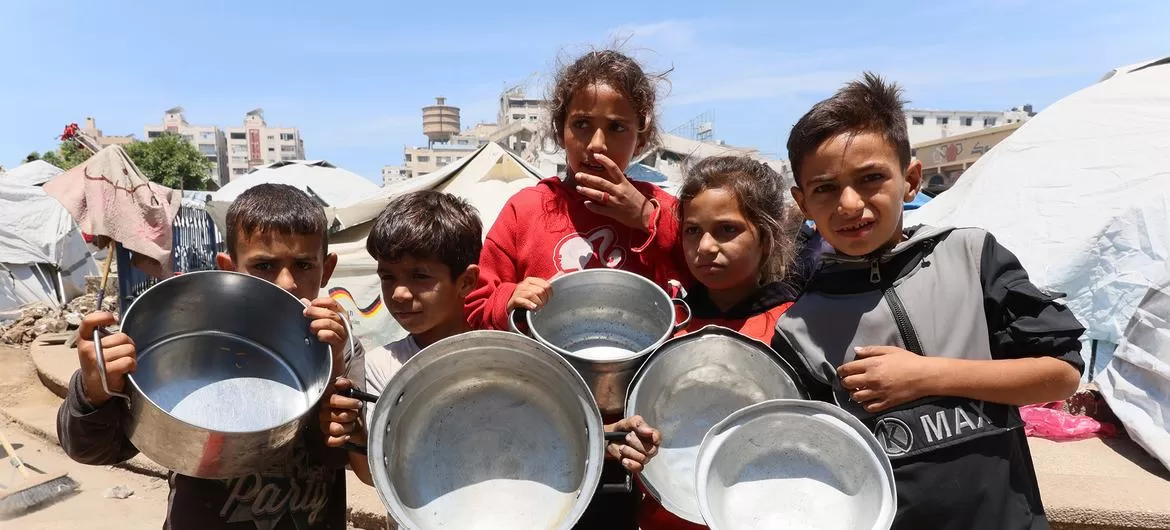
UNITED NATIONS, May 12 (WSH) — Nearly 19 months into the war in Gaza, UN-backed food security experts have warned that 500,000 people—one in five Gazans—are at imminent risk of starvation. With humanitarian and commercial aid completely halted for over two months, acute food insecurity now threatens the entire population of 2.1 million.
Critical Shortages, Soaring Prices
The latest report from the Integrated Food Security Phase Classification (IPC) describes a dire situation: essential goods are either depleted or expected to run out within weeks. The price of wheat flour has surged by up to 3,000 percent since February, with a 25kg sack now costing between $235 and $520.
“All 25 bakeries supported by the World Food Programme (WFP) have been closed for weeks due to lack of flour and fuel,” the IPC report states. The population, it warns, is enduring a “critical lack of access to supplies and services that are essential to survival.”
UN Leadership Sounds Alarm
UN Secretary-General António Guterres expressed deep concern over the findings, particularly the rising levels of hunger among children. He reiterated the urgent need for humanitarian access and a sustained ceasefire to prevent famine.
WFP Executive Director Cindy McCain warned that food is being stockpiled at the border while families inside Gaza starve. “If we wait for a formal declaration of famine, it will be too late for many,” she said.
Collapse of Humanitarian Services
Aid agencies report a sharp drop in emergency food distribution. Community kitchens prepared just 260,000 hot meals across Gaza on Monday—down 70% from 840,000 only five days earlier. The ongoing blockade has rendered UNRWA distribution centers empty, with the agency stating it has had no food to distribute for over two weeks.
New Israeli airstrikes on UN facilities have worsened conditions. On Saturday, a UNRWA school in Gaza City was hit, killing two people. The day before, four were killed in a strike on a UN facility in Jabalia camp. UNRWA said its office and a nearby distribution center were destroyed.
Famine Risk Rising
According to IPC assessments, 15% of people in Rafah, North Gaza, and Gaza governorates are already experiencing IPC Phase 5 conditions—classified as famine. Most of the rest are in IPC Phase 4, indicating emergency levels of food insecurity.
The IPC criticized Israel’s recently proposed plan to manage aid distribution, deeming it “highly insufficient” and likely to create severe access barriers. It warned of a “high risk that famine will occur between now and the end of September,” especially as Israeli military operations intensify.
Breakdown of Society
With formal food systems collapsed, many families have turned to scavenging for survival. The IPC noted that households are now resorting to “extreme coping strategies,” such as collecting trash to sell for food. Alarmingly, one in four reported that “no valuable garbage remains.” Social order, the report warned, is beginning to unravel.




